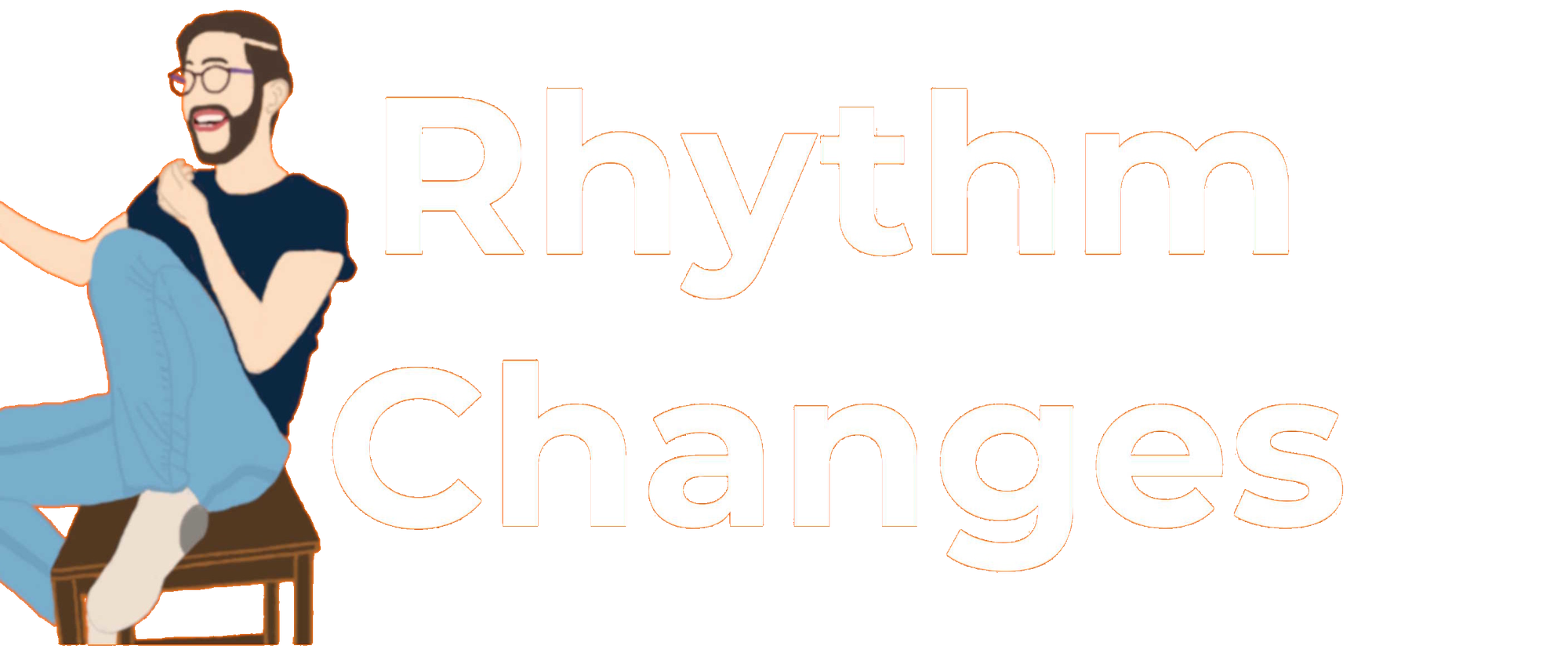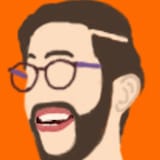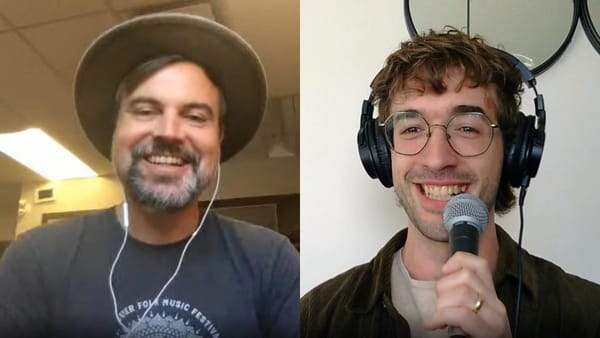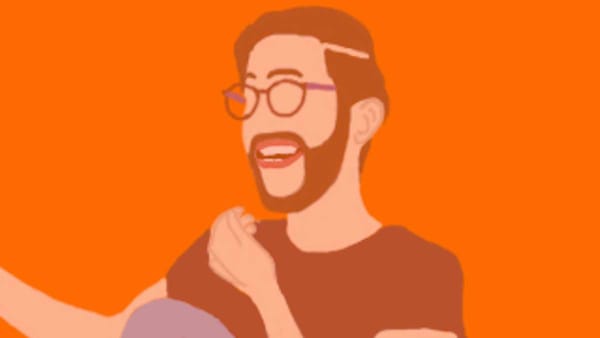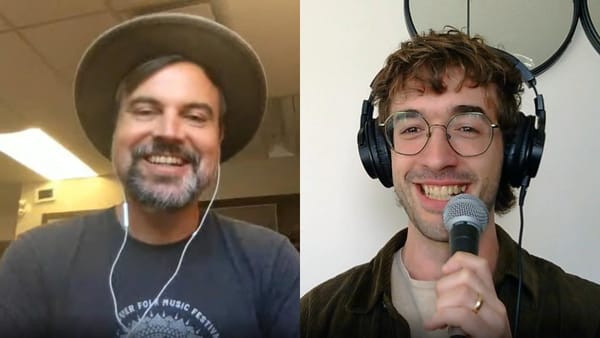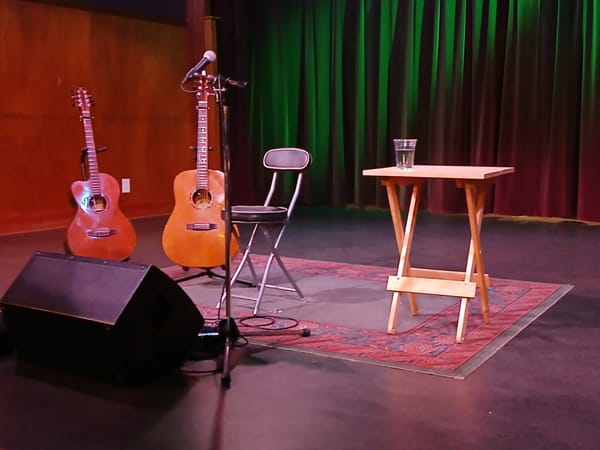Benjamin Deschamps: No Codes, saxophone, tour to the west
An interview with Ben about the chordless collective’s story after they played Tyrant Studios
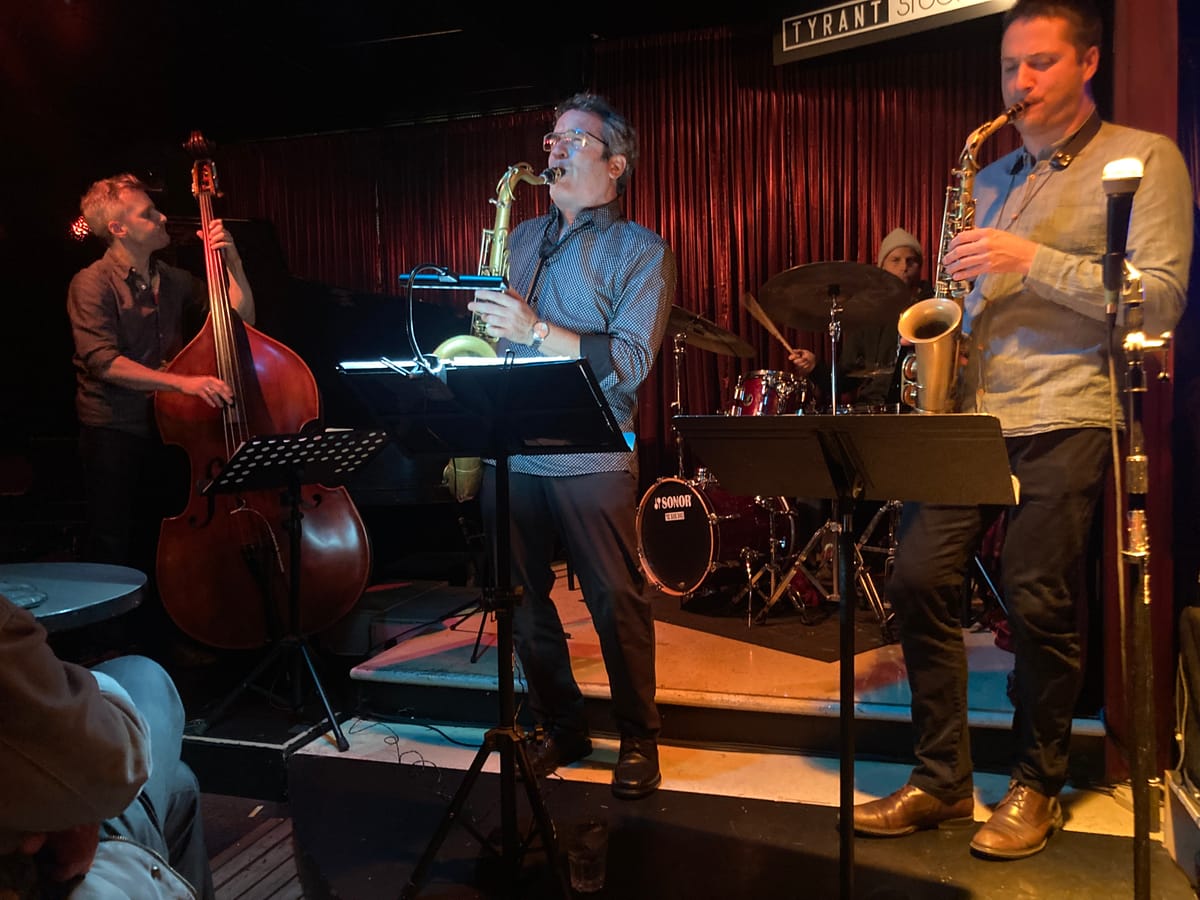
On Friday, November 8, 2024, I heard the chordless two-saxophone quartet No Codes play Tyrant Studios. No Codes were on tour from Montreal to BC via Alberta and later Saskatchewan; their new album Usual Suspects dropped on November 1. Benjamin Deschamps, the band's alto saxophonist and founder, found time for a half-hour call with me during their tour. Please enjoy my conversation with Ben.
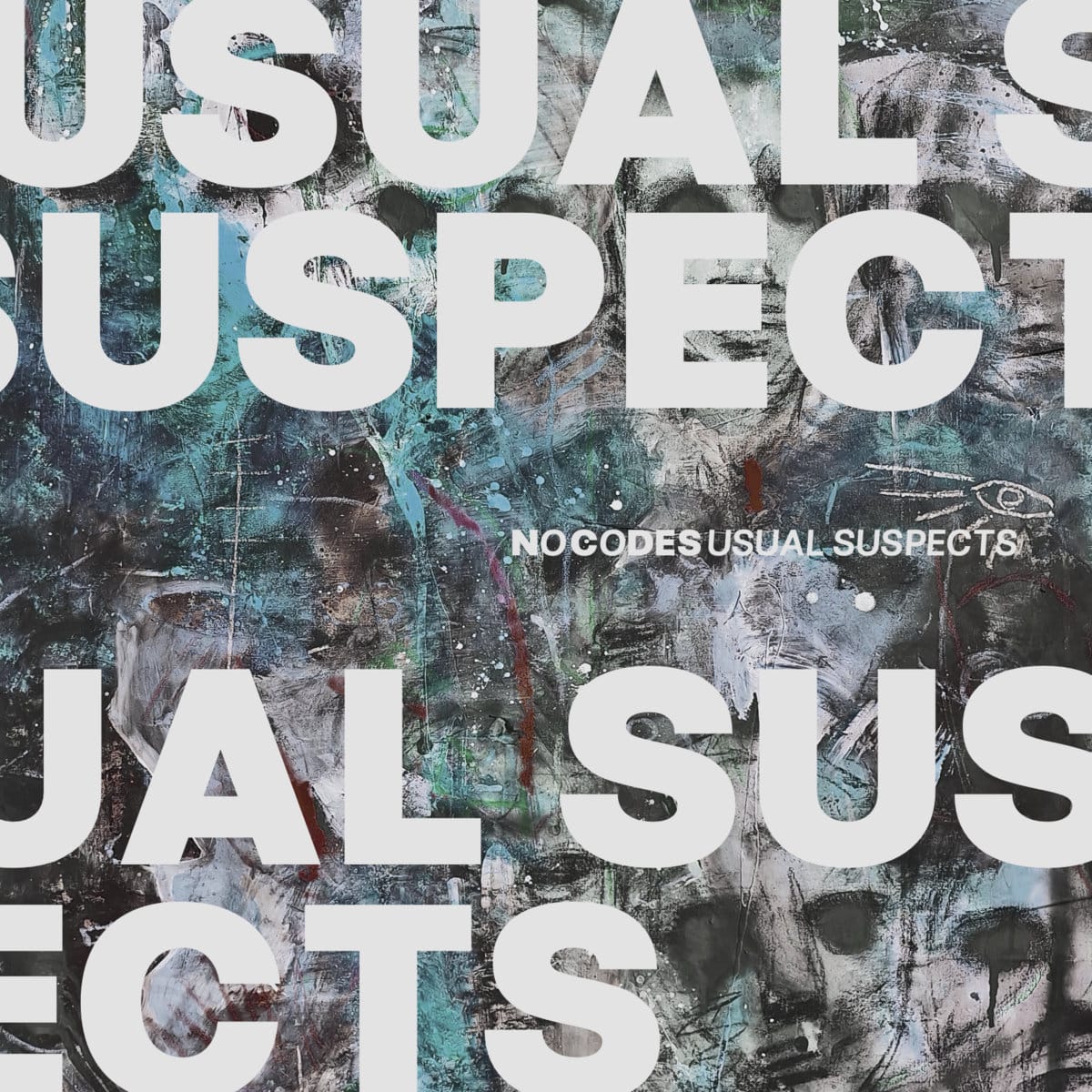
Buy digital (Bandcamp) | Available on streaming
This interview is a non-verbatim transcript and edited for clarity.
WILL CHERNOFF: Okay. Thanks, Ben, for joining me. I really enjoyed hearing you in Vancouver. I know that while you were in BC, you also went to a place that I, a lifelong resident of BC, have somehow never been to, which is Tofino. So how was Tofino?
BENJAMIN DESCHAMPS: It was amazing! How come you never went [laughs]? It's like a true paradise. Actually, it's the second time I went. I performed there. I don't remember, was it six, eight years ago? I played there with Rachel Therrien, the trumpet player also from Montreal, who's now living in Montreal and in New York City. I was in her band for a while, and we played in Tofino. And so it was my second time, and it was wonderful, it was magnificent. I know the organizers over there. It's a friend from Montreal also, called Sophie L’Homme, who put together something called Tofino Jazz, and she organizes shows all through the year. She told me that the average age is 32 years old in Tofino. so it's pretty young people. You know, but it was the same at Tyrant Studios in Vancouver. People were pretty young, quotation marks, for the show. Sometimes when we think about jazz clubs, all we think of is people like... “whiteheads”, do you say that? We say that in French.
WC: Yeah. [We] say “grayhairs”!
BD: Yeah that's it [laughs]. Grayhairs. So, it was really fun to see such a young audience come and check out the show.
WC: You must have played in Vancouver before. What was the previous time that you played in Vancouver?
BD: I played with my previous record that came out in 2021. We played a couple of times, and last time was in April of this year. We played at Frankie’s.
WC: Yeah, I thought I remembered seeing your name on – because I do a list of all the jazz shows in Vancouver every month, and I thought I remember seeing your name there.
BD: Yeah.
WC: When I saw No Codes, I saw that it was you, then I made the connection. Your own album with your own name, that project, the album's [called] Augmented Reality. Is that the one that you put out recently?
BD: Yeah, exactly.
WC: How was your Frankie's gig?
BD: Ah, the Frankie's gig was awesome. It was a full house, people were very nice. I guess there were a lot of tourists, it felt like that. I sold a lot of merch [laughs], even t-shirts and vinyl and CDs. I sold everything I had, and it was our last stop of the tour, so it was fun to come back empty-handed, merch wise.
WC: Gotcha. Yeah, so twice this year. That's great. And I think the other tour stop – because you still have some to come, like you came back to Montreal and you still have some more Western dates to come – but you also played somewhere in Calgary, right?
BD: We played at the Ironwood [Stage & Grill] organized by the YYC Jazz Festival, because Calgary, as I'm sure you know, they have the three different jazz festivals through the year. And now upcoming this weekend, we're going to play this Friday, November 15th, in Edmonton at the Yardbird Suite; and then we're going to play November 16th, on Saturday, at the Bassment in Saskatoon.
WC: Those are the two big stops in those cities. Have you played those venues as a leader before?
BD: Yeah, I did. Yardbird Suite, I think it's going to be the third time as a leader, and I played there as a sideman as well. And the Bassment we played there, was it last April or last November? I don't remember. Yeah.
WC: It's such a big country and a challenging country to tour, and we need all the support we can get from various organizations and structures to be able to do it. But you've been doing it for a while. Do you have a sense or a feeling that you have some friends in all these places, and that when you go, you have something where you're starting from? Like, there are friendly faces in these cities, and you're not just going out cold across a huge country? You must feel like you have some of that already added up over the years.
BD: Yeah. Actually, it all started because I studied at McGill University here in Montreal, and it's funny because people come from all the provinces of Canada to go study at McGill, because it's a very good program. And I know especially in Calgary, there are no university programs to study jazz, not anymore. There's a lot of people from the west, and I always joked to the other people I met over there that I went to McGill because it was the closest university from my parents' place [laughs]. But it was actually my number-one choice. In fact, I have friends all across Canada because I met them at McGill. That's the first thing.
And then they came to my shows through the years, brought friends, families, et cetera. There's also different fans, I would say, who saw me once and then keep coming back when they see that I'm going through town. So yeah, there are some familiar faces through Canada to some extent who I see coming back to my shows. It's very fun, actually. And there are also a lot of musicians who moved from Montreal to go to the west actually, in Edmonton and in Calgary.
WC: Maybe this is at McGill or maybe it's not, but can you talk about for each of your three collective-mates in No Codes, how you met them and how you started to collaborate with them?
BD: Yeah, sure! Sebastian, the bass player, he’s the one where we've been playing together for a while now. He's part of my main project as a leader, and we recorded together. He's on all my five records that I did. He's a very good friend, we're really close even outside of music. And I met him, it's true that it was at McGill, but he's older, so we didn't go to school at the same time. It's through a common friend. But to my knowledge, he was the best bass player in town that was accessible for me back in those days to play with. That's how we met and connected.
Louis-Vincent, the drummer, is actually from Quebec City, and we met on a... weird gig, what was it? It was some kind of a musical that we played. We both got called for it. Didn't know each other. We met there. The gig never really happened; it was a weird producer and something came up, so it never really happened. But then that's how we met. And then common friends, we’re the exact same age. I think we maybe went to McGill together, or maybe he was a bit after me. But we definitely played a lot together in jams and through friends, and played a lot of gigs together.
If I talk about Frank, we're going to understand how I ended up playing with Louis-Vincent. So Frank Lozano, obviously he's a bit older than us. He was my teacher, one of my saxophone teachers at McGill, and that's how I met him. Frank is a great musician, he's a great mentor, and he's the one who really pushed me to start my own project when I was doing my undergrad. He told me... I was talking to him, he was a bit like my therapist, [laughs]–
WC: Yeah.
BD: You know, I was almost lying on the couch and going, “Frank...” What year was that? I went to undergrad in 2008 to 2012, so I finished with him around 2012. I said, “Frank, I don't know how to have more gigs. it's so hard. I feel like back in the day, you guys just answered the phone and you could play, but now it's not like that anymore.” And he told me, “Well, if I was your age, I would just do my own project, even if you're young.” I was maybe something like 24 back then. He said, “Start your project, do something about it, and work on it.” He said, “Maybe it's the new way to work around these things.”
And he said, “There's a program here in Quebec that if you want to start a project like that and you're under 30, you need a mentor to co-sign the checks with you, to supervise you." It's a very specific program. He said, “If you want to do this program, I'll be your mentor. I'll sign everything for you.” So then I did my first record, because he kicked me in the butt to do it. I also invited him to be on the record.
And then fast-forward to my second record, I'd been named Révélation Radio-Canada en jazz, kind of a jazz up-and-coming CBC [thing], I would say. I released that second record, and in the gift that they gave me, they gave me some studio time. Then I didn't know what to do, because I just recorded a record. So I thought, let's have a second band, something completely different.
That's how I made No Codes. I wanted a band that was completely different, so I called a different drummer, Louis-Vincent Hamel. I called Sebastian again on bass, because I wanted to call different bass players but they were too busy. Seb was a good fit. And I asked Frank, because we worked a lot on playing together. We played a lot together, so we wanted to do something together. That's how we put the band together, and that's how I met pretty much everybody.
WC: Yeah. So the first album was What Do We Know, and the second album was Demi-Nuit.
BD: Yes, that’s exactly it.
WC: And then Augmented Reality is your third, and then there's two with No Codes. So, when you said Sebastien played with you on your five records, that's those five.
BD: Exactly, yeah.
WC: That makes total sense. I hadn't heard Louis-Vincent live, but I had heard him play on this other album by Rémi-Jean Leblanc that was pretty cool, and his drumming stood out on that project too. His grooves, and even his compositions too, are driving so much of Usual Suspects, because he is the most common composer on the album's tracks. He's written the most tracks out of the ones that ended up on this album.
BD: Yeah, exact. I mean, on our first record that's called No Codes that we released in 2018, I think he wrote maybe just one tune, but then... he's a great composer. He released his own record of his own music right before the pandemic, I think. It's called Self Enquiry. It's very good, it’s awesome. There are great players on it: Rafael Zaldivar on the piano, who I hope you know is a great piano player. He's a Cuban who moved to Canada a while ago. Other great players... Louis-Vincent, he's writing a lot of music and he's playing drums for everybody. I mean, he's always on tour playing with Yannick Rieu, who is one of the greatest saxophone player in Canada. He's from Quebec. He's always touring in China all the time and doing some international tours.
Louis just told us, I have a lot of music. We could read it, we read the music, checked it out and it was so good that we said, let's make another record! That's how it happened. I decided to contribute two or three tunes, because everybody had to write some music. Frank wrote also two tunes, and that's it. And Louis already has enough music for another record [laughs]. He's writing a lot. He takes a lot of his time to work on his music.
WC: Yeah, I enjoyed how you said at the gig that your principle for bringing tunes into the band – and it's important that you also say the band is a collective – is that in some sense, the tune has to not be finished. Did you come up with that right away when you started No Codes because you were looking for something different, or when and how did you come to that?
BD: It came through workshopping the music together, because for me that's very hard to not bring a finished product to the band. I like arranged music. I even teach arranging, I teach jazz arranging at McGill University now. I really love writing and arranging. But then we realize that the force of No Codes is... there's the Frank Lozano factor, where he shakes the box, you know? He just takes our ideas and he shakes it, and they just become better. He has so much experience, he has played in so many different bands and different kinds of jazz. He's really into kind of far-left jazz, more of the modern, free jazz, experimental stuff. He's bringing so much.
A lot of the time, at the beginning he said, "You know, maybe if it's possible, I could maybe suggest...” and then now it's like, “Well, I would do this, this, this... bang!" And then the tune is completely different. It's not a hard rule per se, because we tend to bring some finished products, but we know that it's really open. If we feel that the tune could go somewhere else, we do it. We suggest it, and we're always open.
That's what I like about the band. We never feel attacked. Because, bringing one of your original compositions, you feel a bit like... you're not sure, are the other guys going to think it's good, or they going to judge you? But then it's really just... everybody just wants to make the music better. So that's what I like, and it's really open.
Louis-Vincent brought a lot of music, and we changed a lot of his music. That's the cool part. I remember, what tune was it for the first record No Codes? I wanted absolutely to bring a tune to every rehearsal, and then I didn't have a tune for that rehearsal per se. I wrote something very fast, only four bars, and I brought it. And I think that's the first time that everybody said, “You know what? We think it's a whole tune! Let's split it like this... We'll improvise the melody.” And then bang, the tune was created. I think it was at that moment that I realize, okay, I'm really trying too hard back home to write stuff. We have this workshop going on with great musicians.
When I created that band, I wanted it to be a collective. I didn't want it to be a second band that I'm leading. I wanted everybody to, what's the expression? Bring their seat to the table. And it’s working great now. It’s been something like six years. There was the pandemic in between, but it's been at least six or seven years that the band's together now. So I think we really created something interesting.
WC: I would love to find what tune that is. Can I just read you track titles from the No Codes album, and we could maybe figure out what it is?
BD: Yeah. Go ahead.
WC: So I don't think it's “Rules of Compression”, because that's the rhythm changes one that you start with. And it's not the “Have You Met Miss Jones?” one [“No I Didn’t”] because you played that at the show. So what else we have here? We have "Song for Daniel".
BD: No, that's not it.
WC: “Cream Muffin Treat”.
BD: That's “On Green Dolphin Street”.
WC: [Laughs] There we go! There’s still all those standard roots, that’s cool. “Cool Cats.”
BD: I think it's “Cool Cats”! Yeah, because all I did was I wrote a bassline, and I said, there's no melody. And they said, you know what? We don't need a melody. The melody is the bassline. So, we decided it was a bass feature. For that first record, I wanted to only use standards and kind of not only do contrafacts but be inspired by a standard and change it so much that we don't recognize it. So, “Cool Cats” is actually the melody of “Alone Together”. The bassline. Yeah. [We both hum the bassline.] The bassline is the melody of “Alone Together”.
WC: That's very deep! I could see maybe “Green Dolphin Street”, I remembered the “Have You Met Miss Jones?”, I remembered the rhythm changes, but I didn't get that. That’s an interesting one.
BD: Man, there's even a harder one. It's “Song for Daniel”. It's “All of Me”, but I did – so, you're a musician, obviously?
WC: I’m a bass player.
BD: Yeah, that's it. “All of Me”. I did modal interchange to all the chords so that it's in minor.
WC: Whoa [laughs], okay.
BD: So it's in minor, but then I kind of reworked a bit, but it's based off “All of Me” but in minor [...] We don't recognize it because it's completely different. The melody, the mood, the bassline, the rhythmic thing. But yeah, it was what I wanted to do. Everything comes from a standard, but hidden.
WC: Yeah. I'm going back to that track now to check that out. So, you opened your gig here in Vancouver, if I'm not mistaken, with “Anon” from Usual Suspects.
BD: Yeah.
WC: And it's great timing for me today: Gareth Rice in Winnipeg, he aired your Canadiana Suite U of M radio interview today, and I checked it out because I thought that would be fun to check out before I spoke to you myself. You talked about “Anon”. You talked about, if I remember correctly, how it was written – in terms of bringing just a small piece and finishing it with the four of you – that it was brought in as just a three-part chorale basically, like just with whole notes, right?
BD: Yeah!
WC: And then you kind of loop this form and layer the arrangement, right?
BD: Yeah. Exact. This is exactly what we did, and we still have the chart that's only three times and eight whole notes. There's not even barlines, because Frank wanted it to stay open, like we don't know what it's going to be.
WC: I think that's so cool. And now because I heard you play the tune live before I knew that, and then I heard that, it's like, oh, wow. That's an interesting way to build an arrangement.
BD: Yeah, exact. And he really wants the chart to stay this way, because if we feel like playing it completely different, it's open.
WC: Yeah, because it's like all two-saxophone harmony based, and the bass in there as well as the third voice. There's no chords written on the chart. It’s just the three-note chorale.
BD: No, there are only three notes. Yeah, I did write myself some chord symbols on top of those three notes, but that's me, and Frank doesn't believe in that [...] It really opens up the harmony. I remember Joe Sullivan, he's a great big band composer and trumpet player who teaches at McGill. I remember playing in his band. I had to improvise over just two notes. The harmony was two notes. I was a student, and I said, what scales should I use? And he said, "You saxophone players, you always want to know scales." He said, "There are no scales. That’s the two notes. Do something with it! Be creative. Practice. Open your ears. Listen to some music." It's not that he wanted to be harsh. It's just like the box is too closed around your way of thinking about music and jazz, No, it's great, yeah. Absolutely.
WC: The thing about the scales and how they're making the funny comment about how saxophones always want a scale for something – I feel that jazz university also always wants you to have a scale for something most of the time. But you're aware of this, and yet you're also a teacher. Do you think about how to work through that, or s it not an issue so much? Does that show up when you go to teach?
BD: I mean, for me it's not an issue, because I'm teaching [the courses] jazz arranging 1 and 2. We don't have time to get to things as interesting as this. We call it baby-arranging at McGill [laughs]. I'm teaching the basics, the ABC’s of arranging. We start with a quintet chart, and at the end of the year, we finish with a big band chart. I'm already finishing this semester. We don't have time to cover... I mean, it's so short to have 13 or 14 weeks times three hours. It's so short with all the readings and everything. It's very hard to fit so much stuff to cover. I haven't covered it, but you're making me realize that maybe I should mention it. Usually it's people like you, you know? Some students, they’re so interested, they ask such good questions. I like to go and answer their questions the best I can, and we listen to a lot of music. It's really interesting, I like the exchange with the students at university. I love it. So if it comes up, we'll talk about it.
WC: Yeah. And it's not easy to go away and tour in the middle of the semester.
BD: Clearly, that's why we're doing two weekends instead of a whole week. Yeah, it's a bit harder on the carbon footprint [laughs]. Yeah, we're sorry about that. I always feel that. Canada is so huge, but we got to play our music all through Canada, and Canada is huge, so the way to go is taking the plane. But students need to learn, I need to be there.
WC: I had a lot of fun hearing from you about this.
BD: That was really fun! It was really interesting. I'm following you now. It was really nice meeting you, really cool. I'll hit you up if I go back to Vancouver. I mean, I will! I just don't know when, but yeah, definitely.
